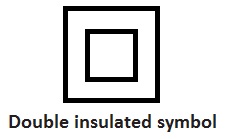Not sure if this is the correct forum for this or not but this seemed like the closest fit at a glance.
What is the difference between two and three pronged plugs and how important is the distinction?
I am concerned that I may have inadvertently swapped a two with a three for a couple of devices. Will this harm them? Are they interchangeable? I have had a device from a normally reliable brand have a complete meltdown after also wrecking other devices it was attached to. It appears it was having power surges. After disconnecting the device, my power bill dropped $20 for the month. Could something like swapping a 2 with a 3 prong plug be enough to cause this?



